xkcd
Part of a series on Webcomics. [View Related Entries]
[View Related Sub-entries]
About
XKCD is a webcomic created by Randall Munroe, an ex-NASA robotics expert and programmer. The series' main subject matter revolves around math, science and Internet culture and features characters drawn as stick figures. All comics published on the site are licensed under a Creative Commons Attribution-NonCommercial 2.5 License.[2]
History
The domain xkcd.com was registered on January 25th, 2003. In an interview with redhat[3], Munroe revealed that the domain name was taken from an instant messenger online handle.
"Actually the domain name came after the instant messenging screen name, which I picked late one night. Five, six, maybe seven years ago, I was tired of having names that meant something. Skywalker4, Animorph7… I wanted to pick a name that I wouldn't get tired of. That would just always mean me. So I just went down combination of letters that weren't taken, until I could find one that didn't have any meaning, didn't have any pronunciation, and didn't seem like an obvious acronymn for anything."
In September 2005, Munroe began to publish scanned copies of his school notebook drawings on xkcd, which became the sole focus of the website.
Features
Characters
Munroe revealed in an interview with Wikinews[9] that the black hat-wearing xkcd figure frequently seen throughout the series was inspired by the character Aram from the webcomic Men in Hats.[27]
I started putting the man in the hat, when I just wanted to say the most absurd thing. A lot of the time, I’m in a real life situation and I think what’s the most hurtful thing, what’s the worst way this can go, and have someone do that gleefully. That’s just a recipe for comedy right there. Then I have the guy in the hat so I’d put all that on him and then say “but that’s not the main guy, he’s much nicer than that” and, and I took that, the black hat symbolizes that for me because Aram from the now ended webcomic Men in Hats also wore a hat.

Other recurring characters include a woman named Megan with short hair, a nihilist that is often paired with an existentialist wearing a beret, and a boy in a barrel, as well as representations of famous people, including blogger Cory Doctorow, free software advocate Richard Stallman, Firefly cast members Summer Glau and Nathan Fillion and zombie versions of Richard Feynman and Marie Curie.
Book
On August 24th, 2010, a collection of Munroe's comics was released in the book xkcd: volume 0.[23] Published by Breadpig[7], a company started by Reddit cofounder Alexis Ohanian, under a Creative Commons license, the book sold more than 25,000 copies within 6 months and a total sum of $52,961.78 from the proceeds were donated to the Room to Read[8] charity organization.
Reception
Explain Xkcd
The website Explain xkcd[10] was registered on August 10th, 2009, which provides thorough explanations of the subject matter discussed in each xkcd comic. The editors initially ran their own explanations for each comic strip, but later enabled a commenting system for readers to share their own interpretations as well, which could be then put to a vote by the userbase. In an attempt to explain the origin of the webcomic's title, Explain xkcd provided an argument that the name is a reference to The Answer to Life, The Universe and Everything from the science fiction novel The Hitchhiker's Guide to the Universe.
If you assign each letter a value from 1 to 26, then the sum of the values of X, K, C, and D equals 42. This number is significant as being widely recognized as the "Answer to the Ultimate Question of Life, the Universe, and Everything." It was first used by author Douglas Adams in The Hitchhiker's Guide to the Galaxy and has since been referenced in numerous other books, movies, and tv shows.
Highlights
Roller Coaster Chess
The strip "Chess Photo" has prompted many people to stage photographs of themselves on various amusement park rides playing chess, checkers and other games. For more information, see KYMdb – Roller Coaster Chess.

Online Community Maps
The first map of online communities was published on xkcd[4] on May 2nd, 2007. The size of each geographic area was modeled in scale to the estimated number of membership within each community. On October 6th, 2010, Munroe published an updated map[4] with revised estimates based on volume of social activity rather than membership numbers.


Steve Jobs Tribute
On October 6th, 2011, the day after Apple cofounder Steve Jobs' death, xkcd published a comic titled "Eternal Flame,"[25] which featured two stick figures observing the "spinning beachball" animated Macintosh operating system icon (shown below).

"Click and Drag" Comic
On September 19th, 2012, xkcd published the comic “Click and Drag,”[11] which featured an illustration of a large, two-dimensional world that the viewer could explore by dragging the comic with the mouse pointer, revealing previously hidden scenarios outside of the frame.

The same day, developer Florian Wesch[14] released a zoomable version of the comic in a web application on Rent-A-Geek.[13] Redditor McKn33 submitted the comic to the /r/comics[15] subreddit, which reached the front page receiving over 8,120 up votes and 745 comments within 16 days. The Internet news blogs Kottke[16] and BoingBoing[17] posted about the comic, citing Twitter user @revdancatt's estimation that a printed version of the comic would be 46 feet wide:
Ok, so the XKCD map printed at 300dpi is around 46 foot / 14 meters wide, half that at magazine 600dpi quality.
— Rev Dan Catt (@revdancatt) September 19, 2012
The tech news blog Geekosystem[19] published a post titled "Everything You Need to Know About Today's xkcd Comic, 'Click and Drag'," noting that the comic measured to 165,888 × 79,872 pixels (1.3 terapixels) which would require 4,212 iPad screens to fit on. The tech news blog Mashable[18] published a post titled "30 XKCD Click and Drag Comic Easter Eggs You May Have Missed," featuring a slideshow of notable segments of the comic (shown below).


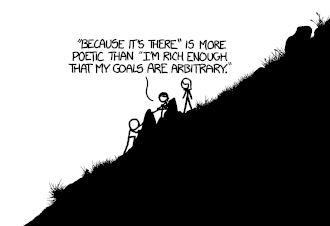
On the following day, Redditor SomePostMan submitted a post to the /r/xkcd[20] subreddit, which linked to a gallery on the image-sharing website Imgur[21] containing every denizen within the comic. On September 27th, Wired[22] published an article titled "How Big is the XKCD Click-Drag World?", which calculated the size of the "Click and Drag" world to be two miles across and two miles high. Many Tumblr[12] users shared their favorite discoveries in the comic under the tag "#click and drag xkcd."
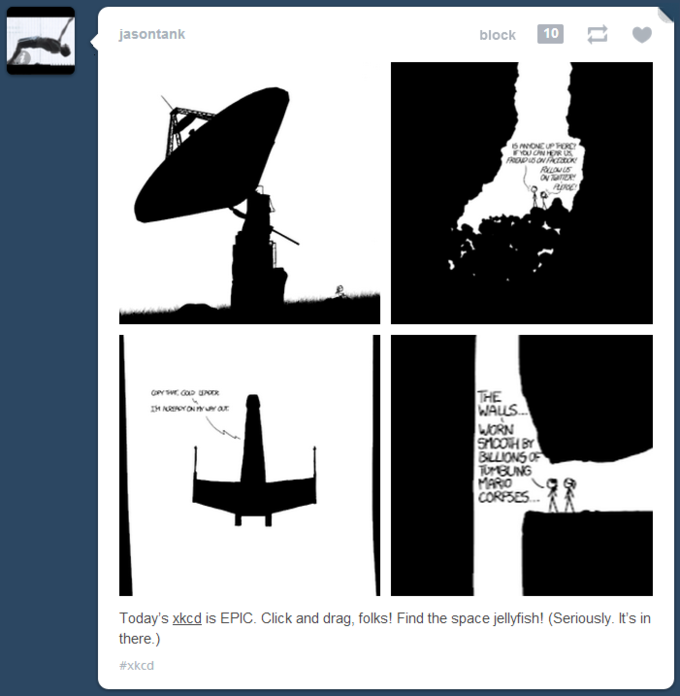
Traffic
As of March 10th, 2014, xkcd.com has an Alexa[5] ranking of 2,108 and a Compete[24] ranking of 5,340.

Search Interest
External References
[4] xkcd – Online Communities
[7] Breadpig – The xkcd school in Laos is complete! Rejoice!
[9] Wikinews – Randall Munroe, writer of xkcd, talks about the comic, politics and the internet
[10] Explain Xkcd – Explain xkcd
[11] xkcd – Click and Drag
[12] Tumblr – #click and drag xkcd
[13] Rent-A-Geek – XKCD 1110 in a zoomable version – visualization created by dividuum
[14] Dividuum – Florian Wesch
[15] Reddit – xkcd – Click and Drag
[16] Kottke – I didnt expect the world to be so big
[17] BoingBoing – XKCDs 14-foot-wide CLICK AND DRAG map
[18] Mashable – 30 XKCD Click and Drag Comic Easter Eggs You May Have Missed
[19] Geekosystem – Everything You Need to Know About xkcd's Click and Drag Comic
[20] Reddit –
I've catalogued every single denizen of Click and Drag for reference and easy sharing
[21] Imgur – Click and Drag
[22] Wired – How Bid is the XKCD Click and Drag World
[23] Good Reads – xkcd – volume 0
[25] Xkcd – Eternal Flame
[26] Explain Xkcd – Eternal Flame
[27] Men in Hats – Men in Hats

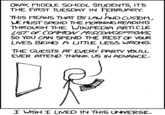
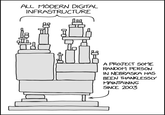
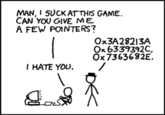
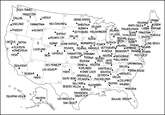
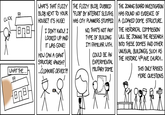

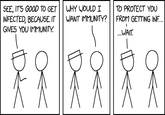



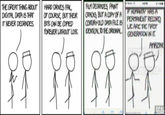



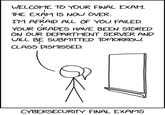
Top Comments
Masem
Oct 08, 2010 at 10:28AM EDT
Tuckerscreator
Oct 09, 2012 at 01:16AM EDT